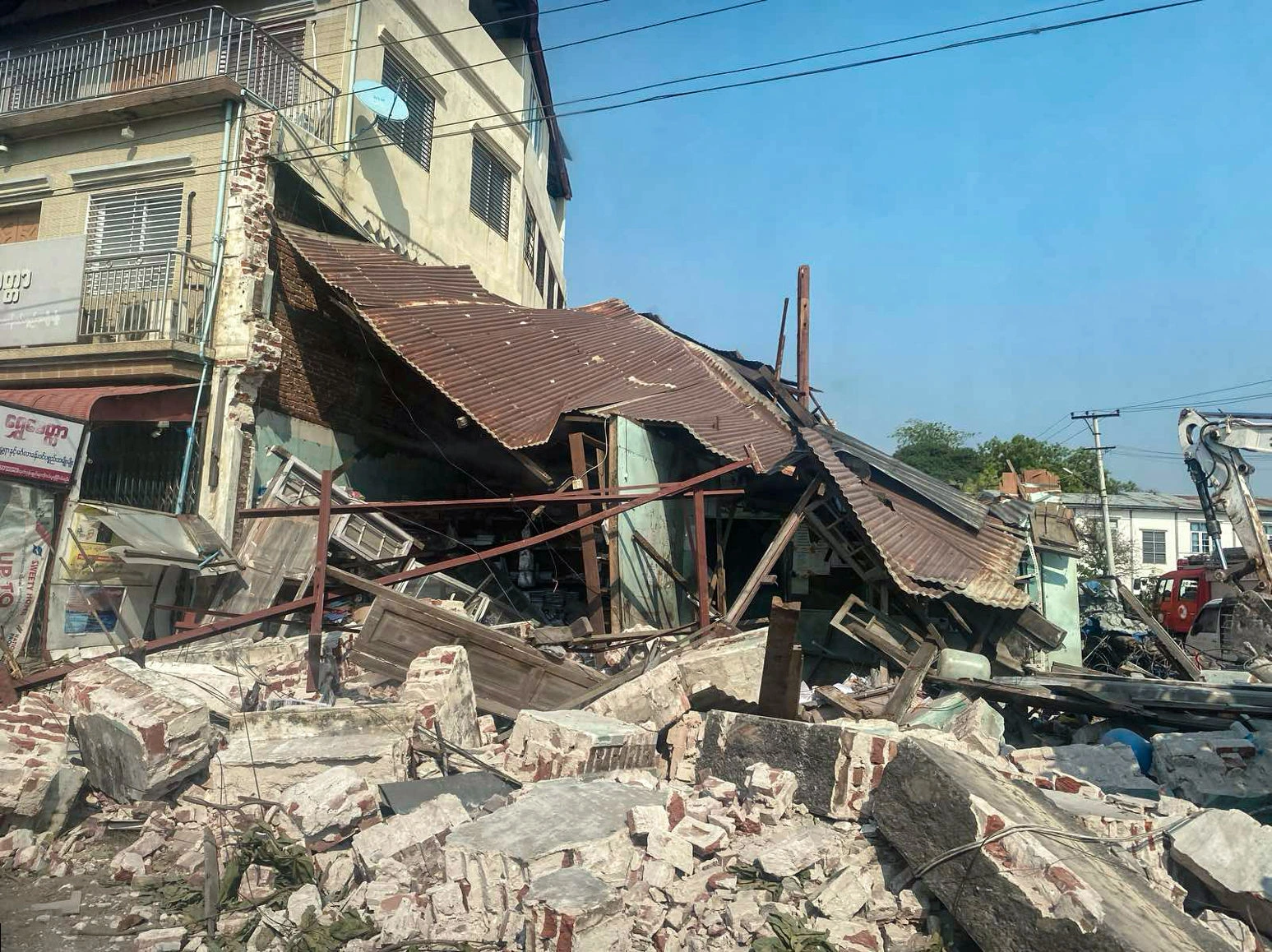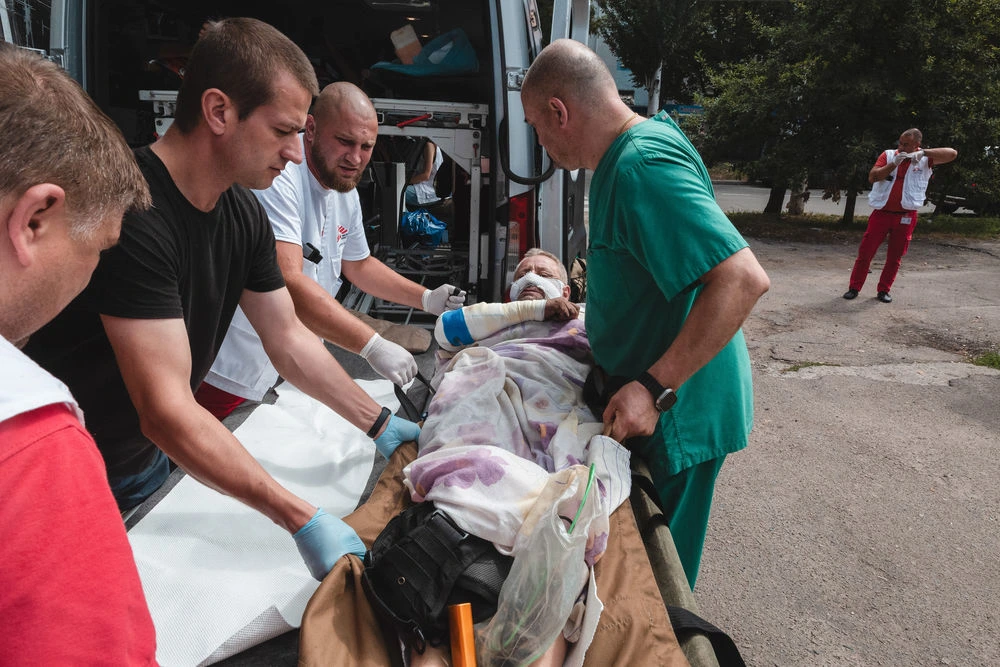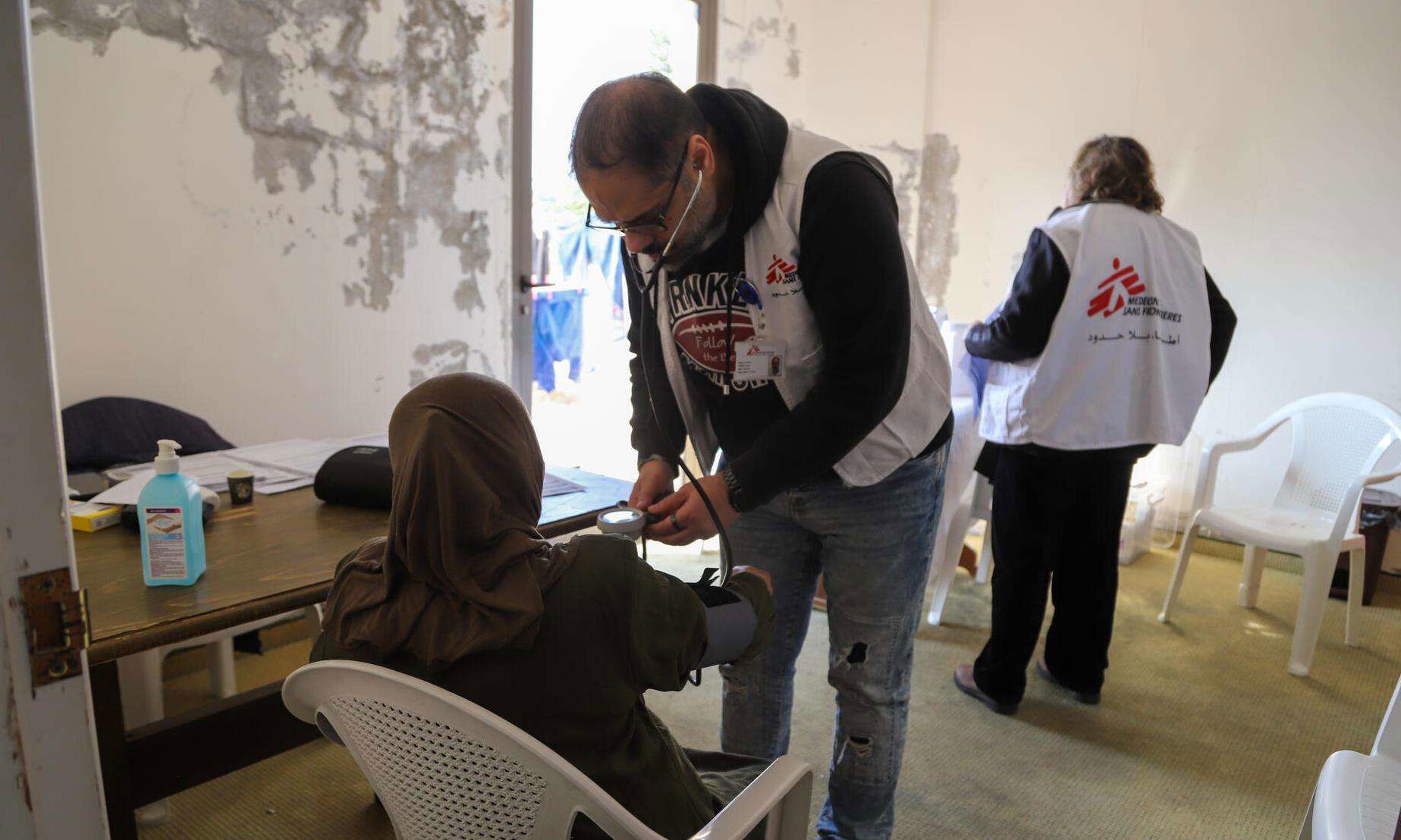Médecins Sans Frontières ambulances in Ukraine have transported more than 8,000 patients from hospitals near the frontline between January and July 2024, more than half with burn, blast and other injuries directly caused by the fighting. This represents a thirty per cent increase from the previous six months and shows the alarming and ongoing human impact of the war, warns the medical, humanitarian organisation.
MSF’s 17 ambulances transport patients at the request of health facilities across areas near the frontlines in the east, south and northeast of the country to hospitals that are less overwhelmed or better equipped to treat their injuries. More than 15 per cent of patients transported so far this year were so ill that they needed to be referred in specially equipped intensive care unit (ICU) ambulances. Of those requiring ICU transportation, 38 were children, the youngest just three years old.
“We need ICU ambulances to transport patients with severe injuries and breathing problems, such as head traumas, burns, multiple fractures, and damage to internal organs. They need equipment like ventilators and oxygen,” said MSF deputy medical coordinator Maksym Zharikov. “Sixty per cent of the patients we transport have war-related injuries such as head injuries, trunk and limb injuries, soft tissue injuries, and massive haemorrhages.”
On 6 August, an MSF team in the east transported a 45-year-old man who had suffered burns to 90 per cent of his body, including his internal organs, as a result of shelling. Patients like this require specialised medical care, which is often only available in hospitals far from the conflict areas. MSF has been running an ambulance referral system since April 2022 and currently has 17 ambulances, including five ICU ambulances and three vehicles capable of transporting multiple patients at a time. Multi-patient ambulances can transport up to seven patients at a time, making it possible to transport several patients with varying degrees of severity. Additionally, during intense shelling, making one trip instead of several reduces the risk for patients and staff.
The need for medical transportation by ambulance becomes especially acute during heavy missile attacks when hospitals are overwhelmed by mass casualties. It is difficult to predict how many intensive care or surgical beds will be needed in any given hospital from day to day. Shelling can occur at any moment, and our teams operate in a state of constant emergency. MSF paramedic Dmytro Bilous reports that when he asks civilians why they continue to live near the frontline despite the danger, the most common reply is that they just didn’t have time to evacuate.
“We're gravely alarmed by the devastating impacts of repeated attacks, including on civilian areas. We see the consequences every day. A recent attack in Kostiantynivka, Donetsk region, on 9 August left 14 dead and over 40 injured. MSF doctors helped to respond, and two severely injured patients were transferred to Dnipro,” said Christopher Stokes, MSF emergency coordinator in Ukraine. “With a constant influx of trauma patients needing referrals, MSF ambulance teams ensure that patients are transferred to hospitals where they can receive the specialised care they require. But as more and more health facilities are destroyed, damaged or closed, and attacks like this continue, the pressure on the remaining hospitals is only going to grow, leaving more and more people without any access to the healthcare they need.”




